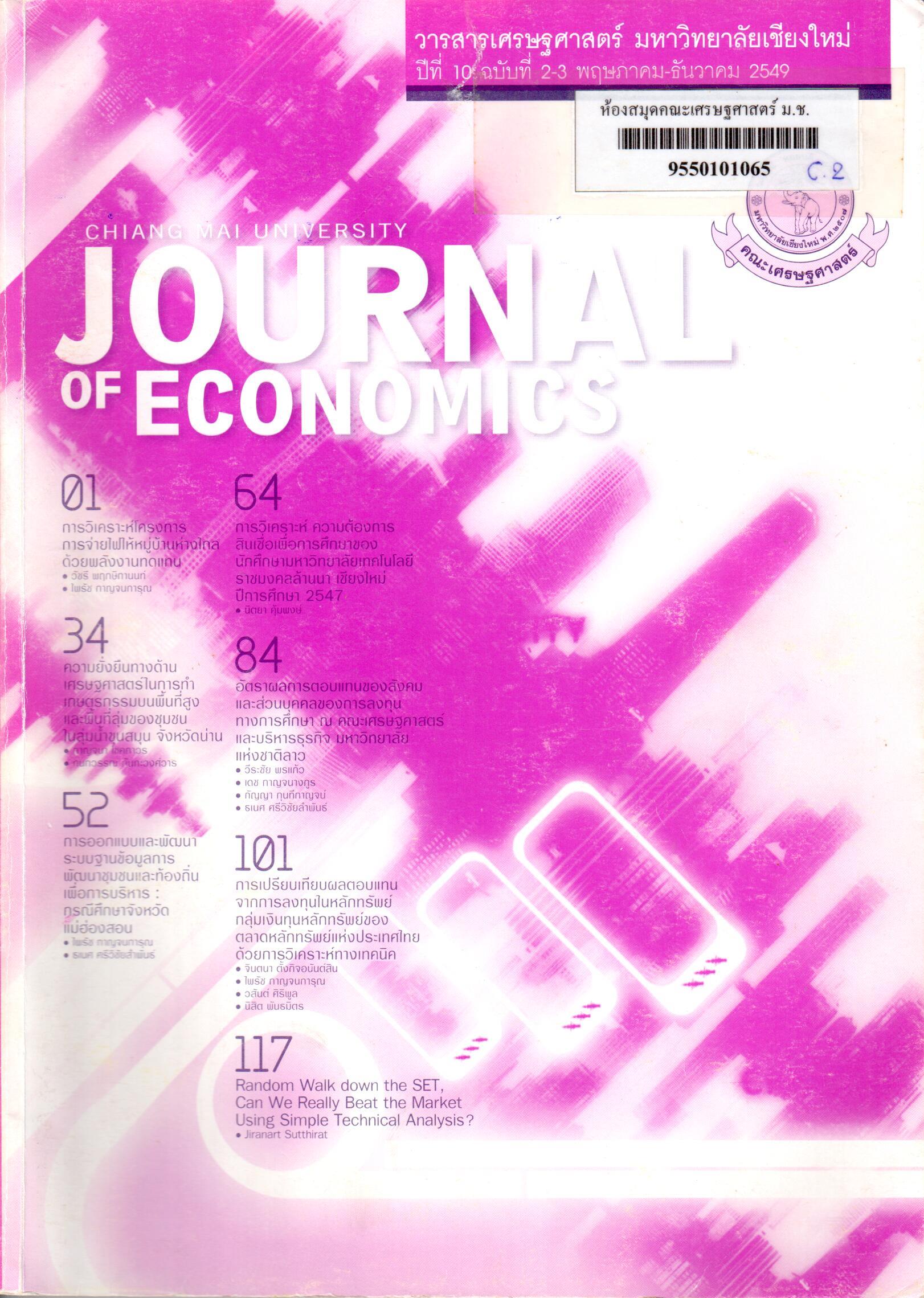Impacts of News on Stock’s Return Volatility under Different Economic Condition: Evidence from Stock Exchange of Thailand
Abstract
Abstract
Not only is a well-specified model required in estimation of financial market volatility, sample period used in such estimation is needed to represent only one economic condition. This paper uses the ARCH-class models to show that using symmetric model over sample period covering more than one economic condition could mislead the volatility estimates. This is because investors perceive differently between good and bad news, which are factors determining volatility. During period full of good news as Thai economic was stellar, another good-news would not surprise investor as much as bad news. On the other hand, over period market clouded by many bad news as in recession period, investors are pessimistic and do not expect any good news. Using the day Thailand floated the baht as change in economic condition, this paper finds evidence suggesting that the impact of good and bad news are diverse under different economic conditions. As a result, to predict market volatility, practitioners and researchers need to be careful in selecting the sample period by excluding sample under one economic condition from another. Moreover the volatility estimators used in such estimation should be asymmetric in which difference between good and bad news is captured. Otherwise, the volatility estimates could be misleading.
Downloads
Issue
Section
License
All opinions and contents in the CMJE are the responsibility of the author(s). Chiang Mai University Journal of Economics reserves the copyright for all published materials. Papers may not be reproduced in any form without the written permission from Chiang Mai University Journal of Economics.






